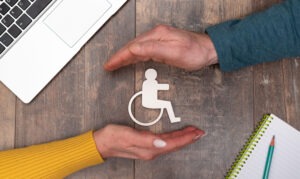What Is a Herniated Disc Injury?
Herniated discs, also referred to as slipped or bulging discs, are a very common injury. According to a report from The New York Times, as many as one-third of American adults show some signs of herniated discs, although only three percent experience symptoms. Some herniated discs result from the natural aging process, while others are from an injury, workplace wear and tear, or certain diseases and disorders.
Herniated discs that persist despite treatment can lead to chronic pain, reduced functional capacity, and disability. Furthermore, people with chronic back pain are more susceptible to depression and drug dependency. If your herniated disc is preventing you from working, you might be eligible for Social Security disability benefits. It is challenging to win Social Security disability for a herniated disc in Pittsburgh, though; there are strict criteria you must meet.
To learn more, call one of our herniated disc disability lawyers at Berger and Green for a free case evaluation: 412-661-1400.
40+ years of experience from strong, knowledgeable, compassionate attorneys.
Start A Free EvaluationDoes the SSA consider herniated discs a disability?
For a herniated disc, there are two ways for the Social Security Administration to determine you disabled. The first way is to meet the requirements under a “listing.” In what it refers to as the Blue Book, the Social Security Administration (SSA) maintains a list of impairments that it considers disabling — if you meet the listing’s severity criteria.
Herniated discs typically fall under listing 1.04: Disorders of the Spine. Note, merely having a herniated disc is not enough to qualify you as disabled. The guidelines stipulate that for the SSA to deem your back condition a disability, the herniated disc must have compromised one of your nerve roots or your spinal cord in some way, and you must have at least one of the following:
- Evidence of nerve root compression characterized by pain, limitation of motion of the spine, and atrophy-related motor loss accompanied by sensory or reflex loss;
- Spinal arachnoiditis with severe burning or painful dysesthesia that requires you to change position more than once every two hours; or
- Lumbar spinal stenosis with chronic pain and weakness that affects your ability to walk.
We know you’re hurting. We can help. Free case evaluations, home and hospital visits.
Contact Us Now For HelpCan I still qualify as disabled if I do not meet the listing criteria?
If your herniated disc is not quite listing-level, the SSA provides an alternative route to get a disability determination. When your evidence shows that your symptoms and functional limitations prevent you from returning to your job or from doing any other type of work, then the SSA may still deem you disabled.
Technically, your condition must be such that you are incapable of engaging in “substantial gainful activity” or SGA, which the SSA defines as making more than $1,170/month. If your income exceeds that, then the SSA will not consider you disabled.
The SSA begins its assessment by reviewing all of your medical evidence and your doctor’s input about your abilities and limitations. The claims examiner will use an RFC (residual functional capacity) form, filled out by your doctor if available, to assess your ability to perform basic functional tasks like bending, stooping, and lifting.
The SSA will judge whether or not you can still work in light of your condition. The examiner will also take your age, education, and job training into consideration when making this call.
If the SSA decides that there is no job you can feasibly do because of your condition, it may grant you benefits.
You need an attorney with the experience and dedication to give your case the care it deserves.
Start A Free EvaluationWhat other criteria must I meet to obtain approval for disability benefits?
After proving to the SSA that you cannot work because of your herniated disc and that your condition has lasted or is expected to last a year or longer, there are other requirements you must meet, as well, depending on which benefit you are applying for:
SSI: Those applying for Supplemental Security Income will need to show that their monthly income is below a certain threshold and that they have less than $2000 in assets (for individuals), not including their car, home, and general personal effects.
SSDI: Those applying for Social Security Disability Insurance benefits must have a certain number of work credits (which you earn by working each year and paying Social Security taxes) on their record, depending on their age. The older you are the more credits you need. For instance, 35-year-olds only need 20 credits on their record, whereas a 62-year-old would need 40.
We can address all the legal hurdles that may be keeping you from getting a fair settlement.
Speak To An Attorney TodayHow do I prove my herniated disc is disabling?
You will need to provide the SSA with detailed, thorough contact information to obtain medical evidence that documents your herniated disc, such as MRIs, CAT scans, and x-rays. Your medical files should contain physician’s notes about your condition, symptoms and limitations, treatments and your response to them, surgical records, and prognoses. The more detailed your doctor is in describing your limitations, the better.
If you also have mental/emotional issues that are preventing you from working, such as depression and anxiety disorders, the SSA will evaluate your mental health records, as well.
The Social Security disability application process can be lengthy and frustrating. It may take a couple of months to get a decision, and the process may be even longer if you receive a denial and need to appeal your case.
The disability lawyers at Berger and Green have helped countless Pittsburgh residents through the appeals process. We know what the SSA is looking for on your application or appeal.
How can I get help with an appeal?
If you applied for disability based on your herniated disc and received a denial for benefits, we can help you appeal your case. We can ask the SSA to reconsider its decision. But we must act quickly — you have only 60 days from the time you received your letter of denial to appeal your claim.
At Berger and Green, we offer free consultations and we do not charge for legal services unless and until you win your case — so you do not have to worry about out-of-pocket fees for our services. You can reach us by calling 412-661-1400.








